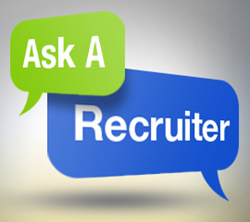 Getting fired, laid off, or quitting a job can be a very rough time. If this happens to you, chances are you’ll be faced with some negative emotions and anxiety about your future. Starting a new job search while you’re under so much stress can be difficult, but there are steps you can take to lessen the blow. Check out these tips to help you move on after a job break up.
Getting fired, laid off, or quitting a job can be a very rough time. If this happens to you, chances are you’ll be faced with some negative emotions and anxiety about your future. Starting a new job search while you’re under so much stress can be difficult, but there are steps you can take to lessen the blow. Check out these tips to help you move on after a job break up.
Give yourself time to let it sink in.
Often, leaving a job comes with negative emotions. These emotions are normal, but you can’t bounce back and find a new job if you’re still focusing on negative thoughts and memories. You need to be positive and enthusiastic about new opportunities in order to land your next job, so make sure you allow yourself time to work through the feelings that come with being let go. Go for a walk, take up a new hobby, or lean on family or friends to help you cope before you take the next step.
Learn from your mistakes.
If you were let go from a job because of something you did – or didn’t do – take some time to think about what went wrong and how you can stop it from happening again. Try to find lessons you can learn from the situation. If you were let go because of company problems, like financial troubles or a change in management, those lessons can be harder to find. But, there are always things you can do to improve your future employability. Remember to think of the positives this change may bring. Perhaps now you can explore a new career path, reassess your strengths and weaknesses, go back to school, or find a company that will allow you to move up in your career.
Start planning.
Starting a new job search can be intimidating, and you may not be sure where to begin. According to Amy Shouse from LearnVest, a financial planning company, start by writing down every place you’d like to work. Regardless of where these companies are located or if you have the education or experience to work there, put them on your list of dream jobs. Then, do at least five things every day that will work toward landing one of those dream jobs. Research companies, make calls, submit applications, and find places to network.
Be ready to talk about the job in interviews.
Although it’s not always easy to talk about former employers, you need to be prepared when an interviewer asks the inevitable question: “Why did you leave your last job?” Remember to avoid badmouthing your previous boss, always remain honest and open with your answer, and try to show your strengths to the interviewer. For more tips on answering this question, check out this Movin’ On Up article.
Remain professional.
Regardless of why you are leaving the company, remember to exit gracefully. Since networking and references are an important part of the workplace, you don’t want to burn any bridges you may need down the road. And don’t broadcast your feelings on social media either. While it may be tempting to let your Facebook, Twitter, or LinkedIn friends know how upset you are, it’s best to avoid saying anything negative about your previous job. These social accounts are easily searchable by potential employers, and you don’t want to air any dirty laundry that could prevent you from landing an interview. If you have to get all of your negative emotions out, rely on a friend you can trust instead of social media.
Consider volunteering.
Looking for your next job may take longer than you expected. Since you don’t want long gaps on your resume that show you were out of work, consider volunteering to an organization in your community during your job search. In addition to giving back and feeling good about your part in the community, volunteering also offers many benefits to your job search. When you volunteer, you have the opportunity to network and meet new people, learn new skills, and gain experience to add to your resume.
Although moving on from a job break up can be tough, it doesn’t have to be. How have you bounced back from losing a job? Let us know in the comments section below!
Movin’ On Up is brought to you by Express Employment Professionals.






